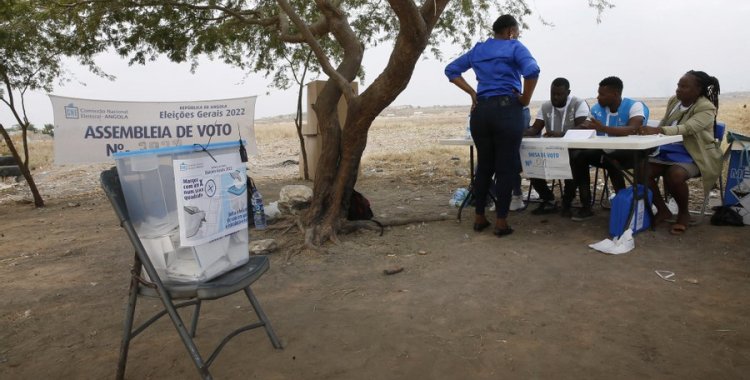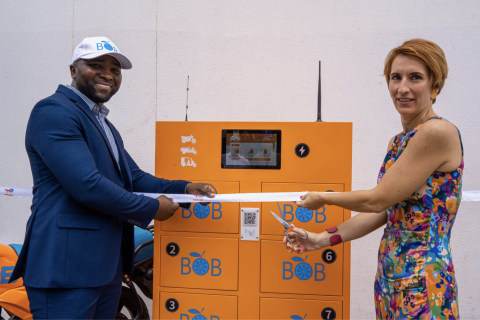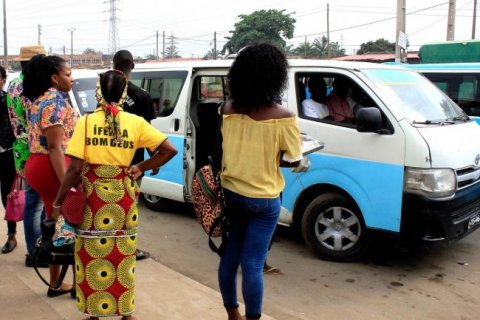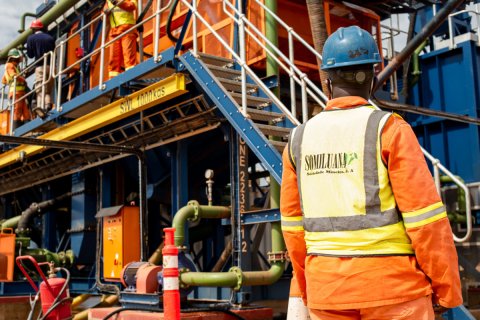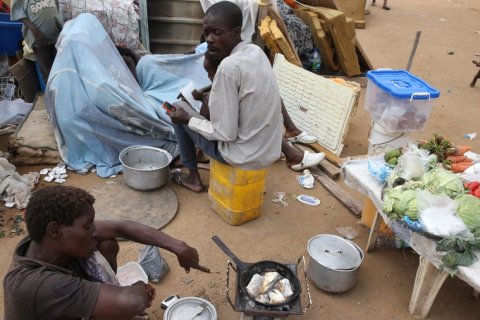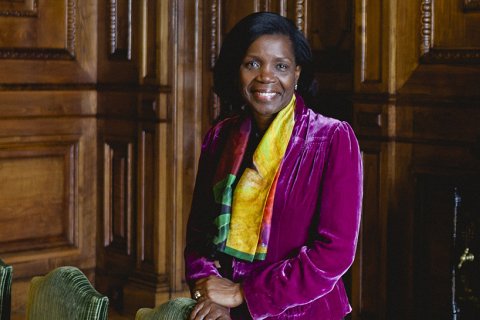The position of the Obea election observation mission is described in its preliminary statement on the August 24 general elections, presented this Thursday at a press conference, at the headquarters of the Episcopal Conference of Angola and São Tomé (CEAST), in Luanda.
According to Father Celestino Epalanga, who presented the statement, Obea volunteer observers covered, on election day, the 18 provinces of the country in 61 municipalities from 6:00 am to the closing of polling stations.
The mission found that some voters joined the "Votou, Sentou" campaign, but "in very small numbers", and after the vote, voters "were free to return to the polling stations to verify or demand the publication of the summary minutes".
"This civic exercise [consultation of the summary minutes] was carried out freely and consciously, mainly in urban areas, with no record of detention or imprisonment of voters or coercion by public order bodies", he said.
The Obea mission said it had observed some constraints in relation to the logistical conditions for all members of the polling stations, namely food, water, first-aid kits, access to hygiene conditions and overnight stays in polling stations, especially in rural areas.
Regarding the logistical organization of polling stations in tents of the National Electoral Commission (CNE), "it was observed that the confined space of more than two polling stations did not respect limits between the ballot boxes, the voting booth and the space reserved for delegates list".
The limited space "jeopardized the secrecy and security of the vote", they point out.
"The mission observed the lack of publication of the list of voters in all polling stations visited and failures in the voting procedures regarding the valid documents that entitle the right to vote", underlined the priest, who is also the secretary general of the Justice and Peace of CEAST.
The presence of list delegates, in the total number of polling stations, "especially from the MPLA and UNITA parties, which were in 100 percent", was also highlighted by the Obea observers.
The body, coordinated by the Archbishop of Lubango and chairman of the Justice and Peace Commission of CEAST, Gabriel Mbilingue, said that it had also recorded "insufficient civic education of citizens".
In 17 percent of polling stations, they added, "situations were found in which polling station members and list delegates opted for gestures and language aimed at voters that could influence the direction of the vote."
Complaints from voters regarding the location of polling stations were also part of the findings of the Obea election observation mission.
The findings, continued Father Celestino Epalanga, "allow us to conclude that the environment recorded on the 24th of August, in the urban and rural areas observed, was favorable to the exercise of the right to vote by voters".
"However, the insufficiencies registered in the preparation of the voting act, particularly the lack of posting of voters' lists with due notice, as established by the electoral law, compromised the transparency of the process", concluded the observers.
The president of the CNE, Manuel Pereira da Silva, released on Monday the minutes of the final tabulation of the general elections of 24 August, which proclaimed the Popular Movement for the Liberation of Angola (MPLA) and its candidate, João Lourenço, as winners. with 51.17 percent of the votes, followed by the National Union for the Total Independence of Angola (UNITA) with 43.95 percent.
With these results, the MPLA elected 124 deputies and UNITA elected 90 deputies, almost double the 2017 elections.
The Social Renewal Party (PRS) won two seats in parliament with 1.14 percent of voters' votes, the same number of deputies won the National Liberation Front of Angola (FNLA) and the Humanist Party of Angola (PHA) with 1.06 percent and 1.02 percent of votes, respectively.
The CASA-CE coalition, the APN and the P-Njango did not obtain seats in the National Assembly, which in the 2022-2027 legislature will have 220 deputies.
Asked about the fairness and transparency of the electoral process, the executive director of the Angolan Institute of Electoral Systems and Democracy (IASED), member of Obea, Luís Jimbo, said that observers are not responsible for judging the process.
"Elections must take place within the framework of the law, observers do not have this mission of judging a process in itself, all of it national, giving a sense of replacing the justice that they were free, fair, we are verifying what was done according to the law and what needs to be improved and it is in this environment that we speak about the process", he replied.
The Obea mission, which included 61 non-governmental organizations and the Catholic, Evangelical Congregational de Angola and Evangelical Baptist in Angola churches, guarantees that it will "continue to monitor the entire post-election period of complaints and electoral disputes".
They also appealed to all electoral agents, especially the CNE and political forces, to "do everything to maintain strict compliance with the law" and to the electoral body to "make more information available on its website", especially the summary minutes.

